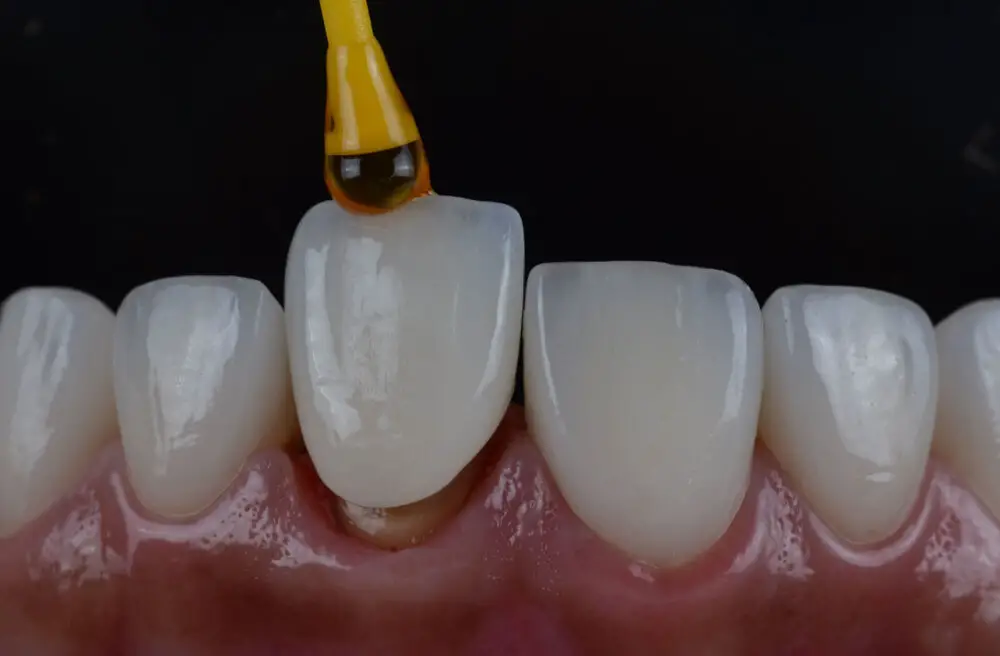Why Wisdom Teeth Emerge Later than Other Teeth: Exploring the Reasons

Wisdom teeth, also known as third molars, are the last set of teeth to emerge in the human mouth. They typically appear in the late teenage years or early twenties, long after all other teeth have already erupted. This delayed emergence of wisdom teeth has puzzled scientists and dental professionals for years, leading to various theories and hypotheses. In this article, we will delve into the reasons behind the delayed emergence of wisdom teeth and explore the possible evolutionary and biological factors that contribute to this phenomenon. One of the primary reasons for the delayed emergence of wisdom teeth is the limited space in the jaw. Unlike other teeth that have already established their position in the mouth, wisdom teeth have to grow at the very back of the jaw, where there is often little to no room left for them. As a result, wisdom teeth may emerge partially or not at all, causing various dental problems such as impaction, infection, and crowding. This lack of space is thought to be a consequence of the evolutionary changes in the human diet and jaw structure, with the human brain growing larger and the jaw becoming smaller over time. However, this is just one of the many possible explanations behind the delayed emergence of wisdom teeth, and the topic remains a subject of ongoing research and debate.
Wisdom teeth, also known as third molars, are the last teeth to emerge in the adult mouth. They typically appear between the ages of 17 and 25, long after the other teeth have erupted. The reason for this late emergence is thought to be related to evolutionary changes in human diets over time. Our ancient ancestors had larger jaws and ate tougher, more fibrous foods, which required more chewing power and a greater number of teeth. As our diets have become softer and more refined, our jaws have become smaller and our teeth have changed accordingly. This has led to a lack of space in our mouths for these third molars to emerge, causing them to often become impacted or cause other dental problems.
Wisdom teeth, also known as third molars, typically emerge later than other teeth, usually between the ages of 17 and 25. This delayed eruption is due to evolutionary changes in the human diet and jaw structure. As our ancestors’ diet consisted of coarse foods that required more chewing, the jawbone was larger and stronger, able to accommodate more teeth, including the wisdom teeth. However, as our diet has evolved, our jaws have become smaller, and there is less room for these extra teeth. This is why wisdom teeth often become impacted, causing pain and discomfort, and requiring extraction. Additionally, advances in dental hygiene mean that we are less likely to lose teeth, reducing the need for extra teeth to replace them.
Evolutionary Perspective

The evolutionary perspective provides a fascinating insight into the reasons why wisdom teeth emerge later than other teeth. According to this perspective, our ancestors primarily relied on a coarse diet, which included roots, nuts, and raw meats. Since this diet was challenging to chew, our ancestors required more teeth to grind and crush their food efficiently. As a result, they evolved to have larger jaws and more teeth than modern humans. However, as our diet evolved over time, we no longer required as many teeth to chew our food. As we shifted from a coarse diet to a softer one, our jaws became smaller, and our teeth reduced in number. However, our genetics have not caught up with this change, and our bodies still produce wisdom teeth, which are no longer necessary. This is why wisdom teeth usually emerge later in life, when there is no room in our smaller jaws. As a result, many people experience pain, discomfort, and infections when their wisdom teeth try to emerge. Overall, the evolutionary perspective provides a compelling explanation for why wisdom teeth emerge later than other teeth and why they can cause so much trouble.
Evolution is the process by which species change over time, adapting to their environment through genetic variation and natural selection. Wisdom teeth, also known as third molars, are a textbook example of how evolution works. In our distant past, our ancestors had larger jaws and needed these extra teeth to help them chew tough, fibrous foods like roots and meat. As our diets changed and our jaws grew smaller over time, these teeth became less necessary. However, because evolution is a slow process, our bodies still develop wisdom teeth even though we no longer need them. This is why wisdom teeth typically emerge later than other teeth and can cause problems such as impaction or infection. Understanding how evolution has shaped our bodies can help us better understand why our teeth develop the way they do and how we can prevent or treat any related issues.
The theory of the human jaw shrinking over time is an intriguing concept that has been proposed to explain why wisdom teeth emerge later than other teeth. This theory suggests that as humans evolved, our jaws became smaller due to changes in diet and lifestyle, resulting in less space for teeth to grow. Additionally, the modern human diet is much softer and easier to chew than the diet of our ancestors, which may have also contributed to the shrinking of our jaws. As a result, wisdom teeth may not have enough room to grow in the mouth, leading to their delayed eruption or even impaction. While this theory is still debated among scientists, it provides a fascinating insight into the evolutionary history of our species and the reasons behind our dental development.
The emergence of wisdom teeth, also known as third molars, has long puzzled scientists as to their purpose. It’s believed that in prehistoric times, the larger jaws of our ancestors allowed for ample space for these teeth to grow in and serve as additional molars, helping to grind up tough plant material and raw meat. With the advent of agriculture and the softer, processed foods that came with it, our jaws have gradually become smaller over time, leaving little room for these extra teeth. As a result, wisdom teeth often become impacted or cause dental issues and are frequently removed. Although no longer necessary for our modern diet, wisdom teeth continue to emerge later in life for many people, providing a fascinating glimpse into our evolutionary history.
Modern Diet and Jaw Development

In modern times, the way we eat has drastically changed from what our ancestors used to consume. The modern diet is loaded with processed and soft food that requires minimal chewing. This shift in dietary patterns has resulted in a decrease in jaw development, which affects the eruption of wisdom teeth. The jawbone requires consistent stimulation to grow and develop properly. A diet that involves a lot of soft, processed food does not provide the necessary resistance and pressure to the jawbone, resulting in an underdeveloped jaw. As a result, the wisdom teeth, which are the last to erupt, often do not have enough space to emerge and end up causing pain, discomfort, and other dental issues. Moreover, the modern diet is also lacking in certain nutrients that are essential for bone development, particularly calcium and vitamin D. These nutrients are crucial for the growth and maintenance of healthy bones, including the jawbone. However, a diet that is low in these nutrients can lead to weak and fragile bones, including the jawbone. This, in turn, can make it challenging for the wisdom teeth to erupt properly. Therefore, it is important to maintain a balanced and nutritious diet that includes plenty of whole foods, particularly those that are rich in calcium and vitamin D, to ensure optimal jaw development and the proper eruption of wisdom teeth.
The modern diet has undergone significant changes in recent times, with a shift from whole foods to processed foods that are high in calories but low in nutrients. This change in diet has resulted in reduced jaw development, leading to the emergence of wisdom teeth later than other teeth. The high consumption of soft, processed foods has led to a decrease in chewing activity, which is essential for the development of strong, healthy jaws. As a result, the jaw bone has become smaller and less able to accommodate the emerging wisdom teeth, leading to increased cases of impacted wisdom teeth. Additionally, the lack of certain essential nutrients in the modern diet has also contributed to poor jaw development, making it more difficult for wisdom teeth to emerge properly.
The role of processed foods and soft diets in jaw development and wisdom teeth emergence is an interesting area of study. It has been suggested that the modern Western diet, which is high in soft, processed foods, may be contributing to the delayed emergence of wisdom teeth. This is because such foods require less chewing and do not provide the same level of stimulation to the jaw muscles and bones as harder, more fibrous foods. As a result, the jaw may not develop to its full potential, leading to a lack of space for wisdom teeth to emerge. Additionally, the softer diet may cause the teeth to shift and become misaligned, further exacerbating the issue. While more research is needed to fully understand the impact of processed foods and soft diets on jaw development and wisdom teeth emergence, it is clear that our dietary choices can have a significant impact on our oral health.
Traditional diets, which typically included tougher foods that required more chewing, were known to contribute to the development of a stronger jaw. This is because the constant movement of the jaw during chewing exercises the muscles and bones in the jaw, leading to increased bone density and the growth of a wider, more robust jaw. However, with the advent of modern diets that are softer and easier to chew, the jaw is not being exercised as much, leading to less bone density and a narrower jaw. This can result in a lack of space for wisdom teeth to emerge, causing them to be impacted or emerge later than other teeth.
Genetics

Genetics plays a crucial role in the development of wisdom teeth. The emergence of wisdom teeth is a complex process that involves the interaction of various genes. These genes determine the size and shape of the jaw, the number of teeth, and the timing of their eruption. Studies have shown that certain genetic variations can affect the growth and development of wisdom teeth, leading to delayed or impacted eruption. For instance, mutations in the PAX9 gene have been linked to the absence of wisdom teeth, while mutations in the EDA gene have been associated with delayed tooth development. Other genes, such as MSX1 and IRF6, are also involved in the regulation of tooth development and can affect the timing of wisdom teeth eruption. Moreover, genetics can also influence the risk of complications associated with wisdom teeth, such as infection, impaction, and overcrowding. People with smaller jaws or misaligned teeth are more likely to experience these problems, which can be aggravated by genetic factors. In some cases, the lack of space in the mouth can prevent wisdom teeth from erupting normally, leading to their partial or complete impaction. Genetic factors can also affect the immune response and the healing process, making some individuals more susceptible to infections or complications. Therefore, understanding the genetic basis of wisdom teeth development and complications can help dentists and researchers better predict, prevent, and treat these issues.
Genetic factors play a significant role in wisdom teeth emergence. Research suggests that the size of the jaw and the number of teeth that an individual inherits from their parents can determine whether they will have enough space for wisdom teeth to grow normally or not. If the jaw is too small, there may not be enough room for the wisdom teeth to emerge, resulting in impaction. Additionally, studies have shown that certain genes may influence the timing of wisdom teeth emergence. For example, the PAX9 gene has been identified as a key player in tooth development and may be associated with the timing of wisdom teeth eruption. Therefore, understanding the genetic factors that influence wisdom teeth emergence can help to predict and prevent potential oral health problems associated with impacted wisdom teeth.
There is a strong correlation between an individual’s ethnic background and the emergence of wisdom teeth. People of Asian descent, for instance, are more likely to experience delayed eruption or absence of wisdom teeth, while those of African or European descent tend to have earlier emergence. The underlying reason for these differences is still unclear and may be due to genetic factors or differences in dietary habits. Nevertheless, it is important to note that the absence or delayed emergence of wisdom teeth does not necessarily indicate a dental abnormality or issue. Dentists and oral surgeons should carefully evaluate each case to determine the best course of action, which may include monitoring or extraction.
Common genetic mutations that can affect wisdom teeth emergence are related to the size of the jaw and the number of teeth. One of the most studied genes is the PAX9 gene, which is responsible for the formation of teeth. Mutations in this gene have been associated with hypodontia, a condition that causes the absence of one or more teeth, including wisdom teeth. Additionally, mutations in the MSX1 gene have been linked to the delayed eruption of wisdom teeth, as this gene is involved in tooth development and eruption. Other factors, such as environmental factors and epigenetic modifications, can also influence the emergence of wisdom teeth.
The Role of Dentistry

Dentistry plays a significant role in maintaining oral health and preventing oral diseases. It involves the diagnosis, treatment, and prevention of dental and oral conditions, including cavities, gum diseases, and oral cancer. Dentistry also includes the restoration of damaged teeth and replacement of missing teeth with implants or dentures. Regular dental check-ups and cleanings are crucial to maintaining healthy teeth and gums. Dentists also educate their patients about good oral hygiene habits, such as brushing and flossing, to prevent dental problems. One specific area of dentistry is the study of wisdom teeth. These are the last set of molars to emerge in the mouth, usually between the ages of 17 and 25. The emergence of wisdom teeth can cause pain, swelling, and infection. Dentists can monitor the growth and development of wisdom teeth and recommend extraction if necessary. Understanding the reasons why wisdom teeth emerge later than other teeth is essential for dental professionals to make informed decisions about their patients’ oral health.
The emergence of wisdom teeth is a common dental concern that often requires some form of intervention. The procedures related to wisdom teeth can vary depending on several factors, such as age, the number of teeth present, and the position of the teeth in the jaw. Some common procedures include wisdom teeth extraction, which involves removing the teeth that are causing pain, infection, or other issues. Other procedures may include the use of orthodontic devices, such as braces or aligners, to correct misalignment or overcrowding of the teeth. In some cases, a dentist may recommend monitoring the wisdom teeth to ensure they do not cause future problems. Regardless of the procedure, it is important to consult with a dental professional to determine the best course of action for your individual needs.
Wisdom teeth, or third molars, are often removed due to a variety of reasons. Firstly, they can cause overcrowding in the mouth, leading to misalignment of other teeth. Additionally, wisdom teeth can become impacted, meaning they do not fully emerge from the gum line and can cause pain, infection, and damage to adjacent teeth. In some cases, wisdom teeth can also cause cysts or tumors to form in the jawbone. Finally, as wisdom teeth are located at the back of the mouth, they can be difficult to clean properly and can lead to decay and gum disease. For these reasons, many dentists recommend the removal of wisdom teeth, often before they have fully emerged.
Dentists often consider several factors when deciding whether to remove wisdom teeth or not. One of the primary factors is the position of the teeth. If wisdom teeth are positioned in a way that can lead to overcrowding, decay, or gum disease, they may need to be removed. The age of the patient is also a significant factor. If a patient is older, the roots of the wisdom teeth have fully formed, making them harder to remove. Additionally, the patient’s overall oral health, including the presence of cavities and gum disease, is taken into account. Finally, the dentist may also look at the patient’s bite and jaw alignment to determine if wisdom teeth removal will improve their oral health.
The emergence of wisdom teeth is influenced by various factors. Genetics plays a significant role in determining whether or not a person will have wisdom teeth and how many they will have. The size of the jaw also affects wisdom teeth emergence, as smaller jaws may not have enough space for the teeth to grow properly. Hormones, including estrogen and testosterone, can also impact the development of wisdom teeth. Additionally, diet and nutrition can play a role in the emergence of wisdom teeth, as a diet high in processed foods and low in nutrients can lead to dental problems that affect tooth development. Overall, there are many factors that can impact the emergence of wisdom teeth, and each person’s situation is unique.
Wisdom teeth, also known as third molars, are the last set of teeth to emerge in the mouth, usually appearing between the ages of 17 and 25. There are several reasons why wisdom teeth emerge later than other teeth. Firstly, the jawbone needs to grow and develop enough to accommodate these new teeth. Secondly, unlike other teeth that continuously grow and develop throughout our lives, wisdom teeth are vestigial structures that are not necessary for our daily functioning. Hence, they take longer to form and emerge in the mouth. Lastly, due to changes in our diet and oral hygiene practices, wisdom teeth may not be needed at all, leading to their absence or underdevelopment in some individuals. Overall, the late emergence of wisdom teeth is a natural and evolutionary process that reflects changes in our anatomy and lifestyle over time.
The study of wisdom teeth emergence has far-reaching implications for the future of dental practice and research. Understanding the mechanisms behind why these teeth emerge later than others can lead to the development of new preventative measures and treatments for impacted wisdom teeth, which can cause pain, infection, and other complications. Additionally, this research can inform future studies on the evolution and development of teeth in humans and other species. These findings may also lead to a better understanding of the role of genetics in tooth development and the potential for personalized dental care based on individual genetic profiles. Overall, the investigation of wisdom teeth emergence has the potential to significantly improve dental care and contribute to our understanding of human biology.
Conclusion

In conclusion, the emergence of wisdom teeth later than other teeth is a fascinating biological phenomenon that has puzzled scientists and dentists for years. While there is no definitive answer, various theories suggest that it may be due to genetic evolution, changes in diet and lifestyle, or the limited space in the human jaw. Regardless of the reason, it is clear that wisdom teeth can cause discomfort and health problems if not properly managed. Therefore, it is important to seek professional advice and treatment if you experience any symptoms related to your wisdom teeth. By understanding the reasons behind this dental phenomenon, we can better appreciate the complexity and diversity of the human body and the natural world.






